On Release Day for My Latest Novel, I Ponder My Inspirations
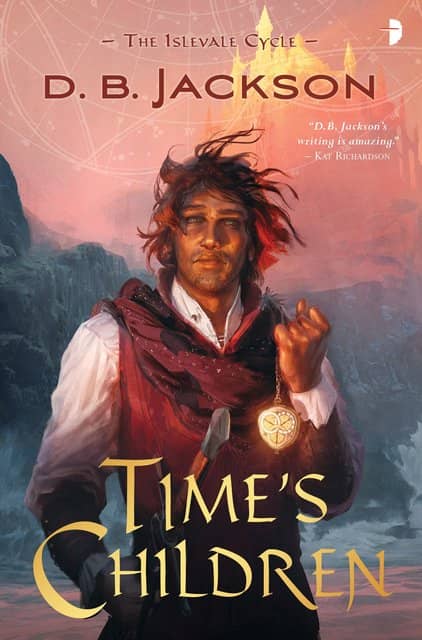 |
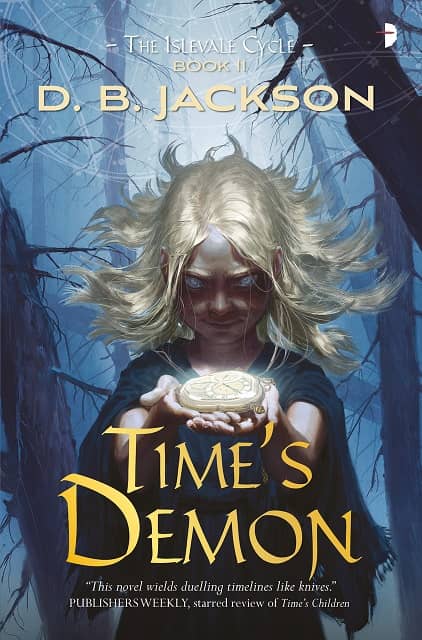 |
Two weeks ago, John O’Neill was kind enough to publish in Black Gate my review of Guy Gavriel Kay’s newest novel A Brightness Long Ago. In the review, I mention that Guy Kay’s work has long been an influence and inspiration for my own. As John and I discussed what I might write for a post marking today’s release of my latest work, Time’s Demon, book two in my Islevale Cycle, he reflected on that line in my review and asked if I might want to put together a piece on the works that have shaped my writing and my career. This is why the man is a World Fantasy Award-winning editor.
Authors writing about our inspirations quickly find ourselves in tricky territory. The fact is that everything we read influences us, just as does every other thing we experience. Our creativity comes from a deeply personal place, and each of us is the sum of, among other things, our experiences, our emotions, the people with whom we interact, and, yes, the art to which we’re exposed. Anything I read can help to shape my work-in-progress – even the worst book ever penned might at least point me in the direction of things I don’t want to do with my next scene. So clearly, when we talk about our influences, we mean something deeper and more substantive.
Then there is the fact that many of our closest friends are also colleagues, and we don’t wish to offend with an act of omission. Again, all that I read influences me in some way, and I am constantly inspired by the talent, vision, and passion of writers I know and care about.
And in talking about influences we also need to beware of the tendency to conflate “inspiration” with “emulation” or, worse, “imitation.” When I said in my review that “Kay’s work, with its lyrical prose, insightful character work, and brilliant world building, has been an inspiration to me throughout my career,” I didn’t mean, “and so I copied his plot and characters, changed the names, and now I’m going to make bank!” The value of literary inspiration is that it enables us to realize fully the potential of our own narrative ideas and ambitions. Put another way, inspiration only helps us if we can preserve the unique qualities of our own authorial voices.
When I was eleven years old and at summer camp, I tried out for a play with a weird title. It had strange characters in it, all of them with weird names as well. And somehow I got the lead role, playing this guy named “Bilbo Baggins.” That stage production of The Hobbit was my first exposure to fantasy, and it changed my life. Soon after, I dove into the novel version of the story, and several years later I read The Lord of the Rings. Then I read it again, and again. Around this time, I also started reading the short stories of Nathaniel Hawthorne for high school English, and I fell in love with his prose and his blending of the historical and the supernatural. In particular, I recall being mesmerized by a story called “Rappaccini’s Daughter,” a dark fantasy that was so different from stories by other writers that it might as well have been written in a different language.
Tolkien and Hawthorne: They were the authors who convinced me that I wanted to read every bit of fantasy I could get my hands on.
Around this time, perhaps a couple of years later, I read in quick succession the first three books of Frank Herbert’s Dune series, both Thomas Covenant trilogies by Stephen R. Donaldson, and the original Earthsea Trilogy by Ursula K. LeGuin. Now, I’m a fantasist, not a science fiction writer like Herbert, and the Donaldson books disturbed me deeply, even at the time I read them, largely because Covenant was such a hateful character. But all of these works revealed to me the endless possibilities offered by the genre. They convinced me that Middle Earth was not the final word in imaginative world building. Indeed, as I mentioned in my most recent Books and Craft feature, which I wrote for Black Gate when my first Islevale book, Time’s Children, was released, Islevale itself was meant as an homage to Earthsea. The sheer wonder of these new worlds enticed me, made me contemplate what I might do if given the chance to create a world or two of my own.
Herbert, Donaldson, Le Guin: Their books were the ones that made me think for the first time, “I want to spend my life creating worlds and writing fantasy novels.” How do I repay that sort of debt?
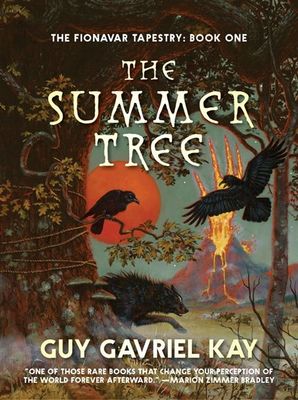 |
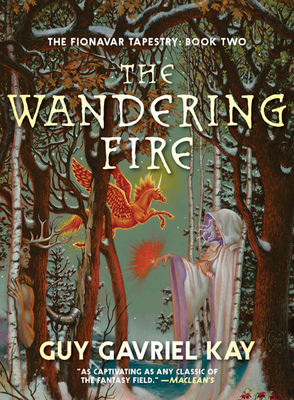 |
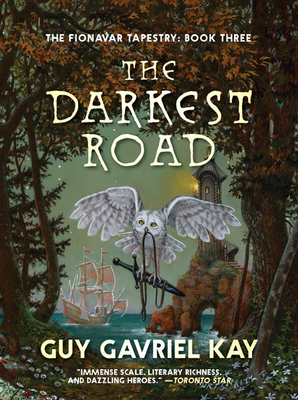 |
I was in my mid-twenties when I read The Summer Tree, the first novel of Guy Gavriel Kay’s Fionavar Tapestry. It had been out for a couple of years and a friend who knew of my love of fantasy and my desire to write suggested that I would like it. I devoured the book. Within two weeks I had finished The Wandering Fire and The Darkest Road, volumes two and three in the series. They were everything I wanted in novels – magical and elegant, exciting and emotional, dark and redemptive and deeply satisfying.
Around this time I was entering graduate school (I still don’t know how I found time to read anything for pleasure…) and I wound up reading several novels by Wallace Stegner as part of my degree work. In particular, Angle of Repose, Stegner’s Pulitzer Prize-winning masterpiece, which I think is one of the finest American novels ever written, taught me the power of voice and point of view, a lesson I have taken to heart in the years since.
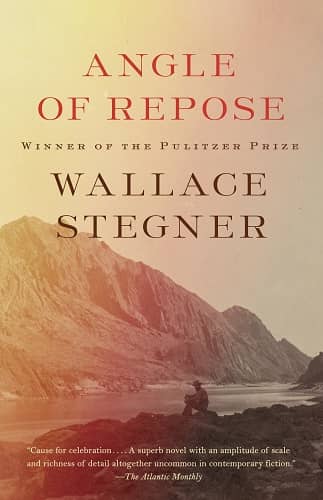 |
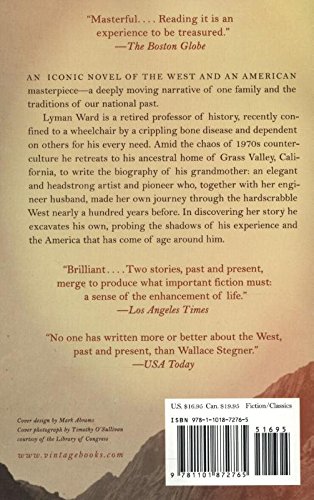 |
Kay and Stegner, then, were the authors who showed me how I wanted to write. They inspired me to stretch myself creatively, to write with ambition, to challenge myself as an artist, and also to challenge my readers. I strive to write stories that are not just entertaining, but also literary and moving and thought-provoking. I’ll leave it to my readers to decide the degree to which I succeed. But Kay and Stegner, and in more recent years Toni Morrison and Barbara Kingsolver, Paolo Bacigalupi and Nicola Griffith, N.K. Jemison and Neil Gaiman, have, with the sheer wonder of their talent, pushed me to keep pushing myself, to write with more economy, to tell stories of scope and depth.
Influence and inspiration are hard to define, and harder still to explain. The joy of writing for a living lies, in part, in the fact that I also have to read for a living. Delving into the tales and worlds of others is part of my job. How cool is that? I have been blessed to write in a golden age of speculative fiction. Today, our genre is home to more voices and perspectives than ever. And if we’re fortunate – if our children and grandchildren are fortunate – we, in turn, will influence and inspire new generations. If I can make even one young reader want to write stories of her own, then I will call that a good day’s work.
D.B. Jackson is the pen name of fantasy author David B. Coe. He is the award-winning author of more than twenty novels and as many short stories. His newest novel, Time’s Demon, is the second volume in a time travel/epic fantasy series called The Islevale Cycle. Time’s Children is volume one; David is working on the third book, Time’s Assassin.
As D.B. Jackson, he also writes the Thieftaker Chronicles, a historical urban fantasy set in pre-Revolutionary Boston. As David B. Coe, he is the author of the Crawford Award-winning LonTobyn Chronicle, as well as the critically acclaimed Winds of the Forelands quintet and Blood of the Southlands trilogy; the novelization of Ridley Scott’s movie, Robin Hood; a contemporary urban fantasy trilogy, The Case Files of Justis Fearsson; and most recently, Knightfall: The Infinite Deep, a tie-in with the History Channel’s Knightfall series.
David has a Ph.D. in U.S. history from Stanford University. His books have been translated into a dozen languages. He and his family live on the Cumberland Plateau. When he’s not writing he likes to hike, play guitar, and stalk the perfect image with his camera.
http://www.dbjackson-author.com
http://www.DavidBCoe.com
http://www.dbjackson-author.com/blog
https://twitter.com/DBJacksonAuthor
https://www.facebook.com/DBJacksonAuthor
http://www.facebook.com/david.b.coe
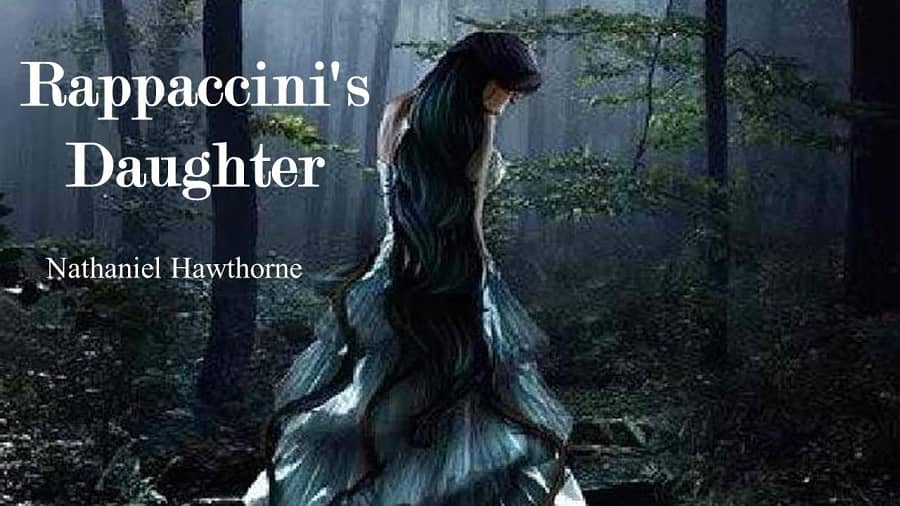
[…] Black Gate Magazine, a post about my writing inspirations […]
[…] Black Gate Magazine, a post about my writing inspirations […]